
Improved cognitive performance, joint flexibility, and immune function, including the prevention of mild skin allergies, are just a few advantages of salmon oil for dogs.
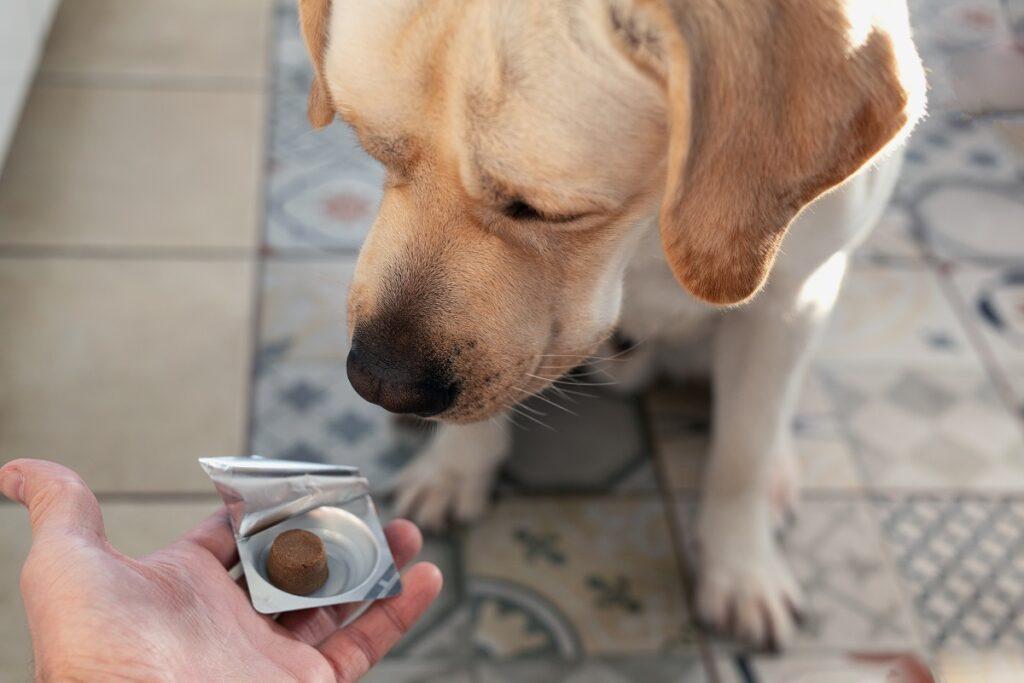
In addition, fish oil can help dogs with heart and kidney problems, and DHA is believed to help with eye and brain development in puppies.
The omega-3 fatty acids eicosapentaenoic acid (EPA) and docosahexaenoic acid (DHA) should both be present in the salmon oil supplement you choose for your dog.
Wild, cold-water fish that have just been captured is the best source of fish oil supplements. You want a product that has been screened for impurities like heavy metals and is produced by a company that employs sustainable fishing methods.
Choose brands bearing the National Animal Supplement Council (NASC) mark to verify that high-quality ingredients are utilized and that the contents correspond to the claims on the label because pet supplements are not FDA-regulated.
Work your way up to a dose of salmon oil that is approximately 25% of the recommended amount listed on the product label. Maximum doses are not always tolerated by all canines.
Some adverse effects of are:
Salmon oil should probably be avoided by dogs who have clotting issues. Always consult your veterinarian to determine whether salmon oil is appropriate for your dog, given his health history, current diet (which may already include omega-3 fatty acids), and medications. Medication interactions with other medications, such as NSAIDs, are possible.
All fish oil products should be safely stored away from direct sunlight in a cool environment.
If you are interested in any of our products or have questions you can visit our contact form for more information or you can check out our Facebook Page.
Can dogs drink apple cider vinegar? Folk remedies for a wide range of human maladies have long used this affordable liquid. It provides exactly as many advantages for dogs when used topically or taken as a supplement.

Apple cider vinegar (ACV) is touted by proponents as one of the least priced, most adaptable, and most powerful canine health remedies.
It’s a well-liked treatment when applied topically for:
When ingested, apple cider vinegar is alleged to:
In the beginning, cider vinegar is a mixture of water and apples or apple pectin, a soluble fiber. All vinegars are made from liquids containing sugar. The natural sugars in apples undergo fermentation and turn into alcohol when they are exposed to air, which enables yeasts to flourish. Acetic acid bacteria convert the alcohol over the course of fermentation into acetic acid, the primary constituent of vinegar. Vinegar’s characteristic flavor, aroma, and qualities are all due to acetic acid.
Given its culinary use, most supermarkets have a range of vinegars, including balsamic (a thick, extremely flavorful grape vinegar), white or red wine vinegar, and vinegars derived from malt, rice, champagne, sherry, beer, and various fruits.
In the US, distilled white vinegar is commonly available. It is a common ingredient in salad dressings, pickles, catsup, and barbecue sauces and is made from grains. It is also used as a home cleaning agent.
Apple cider vinegar, on the other hand, is sometimes offered as a raw (unpasteurized) product that also includes the vinegar’s “mother,” a hazy liquid that contains acetic acid bacteria that have not been filtered. Some who view vinegar as a health supplement favor unpasteurized, unfiltered vinegar.
While no clinical research examining cider vinegar’s impact on dogs have been published in the medical literature, reports regarding its health advantages are anecdotal. This doesn’t mean that the claims regarding its applications have been refuted; rather, they haven’t been put to the test, mostly because apple cider vinegar is cheap, generally accessible, and unpatentable.
A few of the assertions are overstated. For instance, cider vinegar is sometimes referred to as a nutritious powerhouse that is packed with vitamins and minerals, but this is untrue. The sole important nutrient in raw cider vinegar, according to the U.S. Department of Agriculture, is 11 milligrams (mg) of potassium per tablespoon.
While it might help avoid urinary tract infections, apple cider vinegar is not a treatment for that ailment. It also won’t cure the cancer that your dog has.
The usual dosage of apple cider vinegar for dogs is as follows:
The following techniques can be utilized to use apple cider vinegar as a gentle cleanser and disinfectant:
To enhance the coat, digestion, or general health of your dog:
The majority of herbal tinctures contain alcohol, however cider vinegar is the recommended solvent for canine tinctures. Rosemary Gladstar, a herbalist and dog lover, suggests putting chopped fresh or dried herbs in a glass jar (if using dried herbs, fill the jar only halfway to allow for expansion), gently heating raw organic cider vinegar, covering the herbs with warm (not hot) vinegar, leaving a 2- to 3-inch margin, covering the herbs with vinegar, closing the lid, and letting the herbs soak for four to six weeks. Each day, shake the jar. Put the tincture through a strainer, bottle it in amber or cobalt glass with a label, and keep it away from heat and light.
A garlic/dandelion vinegar tincture is suggested as a general tonic and to aid dogs in parasite prevention in addition to the plants described in her books and in canine herbal literature. Use equal amounts of fresh or dried dandelion leaves, roots, and blossoms together with equal amounts of garlic and proceed as directed above.
Tinctures should be progressively increased to 1/4 teaspoon per 20 pounds of body weight per day and added to your dog’s diet.
For the majority of canine uses, cider vinegar needs to be diluted due to its acidity. Although vinegar will sting if applied to broken skin, keep it away from the eyes, mucous membranes, and open cuts or abrasions.
Anywhere wood floors, cabinets, or granite countertops could be stained or damaged, vinegar should not be used. Because cider vinegar is orange-brown in color, it should not be used topically to dogs with white or light-colored coats or in areas where it might discolor white or light-colored carpets or fabrics.
Test a small patch of exposed skin with diluted cider vinegar before to applying it to a dog with sensitive skin, and after 24 hours, look for any signs of irritation, itching, or scratching. Use mild doses like those mentioned above if your dog doesn’t respond negatively. Too much cider vinegar consumption can cause mouth discomfort, vomiting, and tooth enamel erosion.
If you need more information about any of supplements or questions about our Posh Dog Knee Brace you can contact us through our contact form or Facebook Page.
Although vitamin E is beneficial and secure for dogs, not all canines require it. But, dogs taking fish oil may benefit from taking a vitamin E supplement.
Although knowledge about vitamin E dosages may leave you dizzy, vitamin E is healthy for dogs. The recommended vitamin E dosages for dogs seem to vary widely. Even worse, dosages may be indicated in milligrams or international units (IUs) (mgs).
The fact that there are two main types of vitamin E—natural and synthetic—with varying potencies and, consequently, various vitamin E dosages, just adds to the confusion. Although there is a lot to take in, we have the information you require regarding vitamin E supplements for dogs.
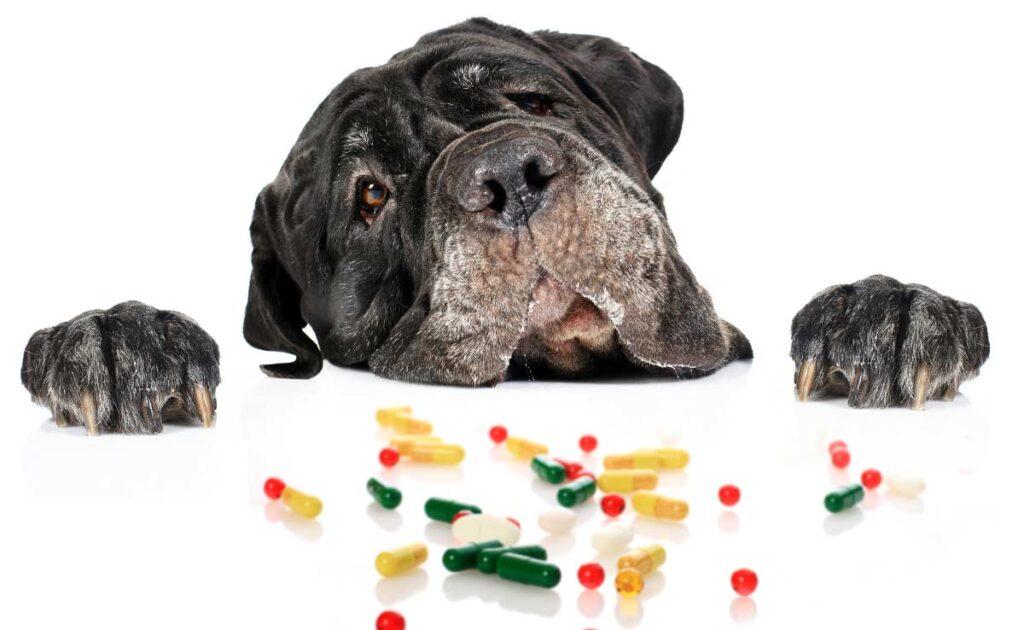
Since vitamin E is an antioxidant, it aids in defending the body’s cell membranes. It contributes to fat metabolism, strengthens immunity, and increases fertility. Your dog’s skin, hair, muscles, and vision will all benefit from it.
Although canines can safely consume vitamin E, not all dogs require a supplement. Canine vitamin E insufficiency is uncommon because most dogs consume plenty of it in a balanced diet. If you’re worried, your veterinarian can order blood tests to determine whether your dog actually has a deficiency.
It’s okay to apply topical vitamin E oil to dogs. Alpha tocopherol and an oil, like virgin olive oil, should be listed under ingredients. It can be used to paw pads, dry cracked nostrils, and irritated or crusty skin regions.
Vitamin E may be advantageous for dogs using fish oil. The beneficial polyunsaturated fatty acids in fish oil for your dog can eventually deplete the body’s vitamin E reserves. The tiny quantity of vitamin E found in fish oil supplements mostly serves as a preservative and is typically present in proportions that are too low to raise your dog’s levels. For dogs getting fish oil, the most typical guideline for vitamin E supplementation is 400 IU of vitamin E for every 1,000 mg of fish oil.
You must first identify the type of vitamin E present in the bottle you bought in order to estimate the recommended dosage for your dog:
Vitamin E occurs naturally as d-alpha tocopherol (d-).
You’ll then need to perform some math. Keep in mind: 2 mg of synthetic vitamin E (dL-) are equivalent to 1 mg of natural vitamin E (d-).
You may also need to convert IU to mg or mg to IU, which isn’t difficult:
So, using these formulas, here are examples:
Of course, aside from the fish oil indicated above, that still leaves open the question of how much vitamin E to give your dog. As a result, we list a few issues in our chart below, along with suggested dosages, that your dog may benefit from vitamin E supplementation for.
Please note that while all of these dosage suggestions are off-label, they were all drawn from renowned veterinary medicine formularies. Never administer a supplement of any kind to your dog without first consulting your veterinarian.
In dogs, vitamin E is mostly harmless; overdose problems are uncommon. Accidental acute overdose typically causes gastrointestinal distress, including vomiting and diarrhea. Persistent overload may result in problems with the other fat-soluble vitamins’ absorption (A, D, and K). When fed too much vitamin E, dogs with low vitamin K levels may experience excessive bleeding due to coagulation issues.
For more information about Vitamins contact us via our contact page or visit our Facebook page.
Although fish oil has been shown to have many health benefits for dogs with arthritis, it can also aid your dog’s skin irritation, brain function, and other conditions.
Veterinarians frequently suggest fish oil for canine arthritis. This is due to the fact that this oil is a natural anti-inflammatory that has been shown to relieve sore joints.
When supplementation began, arthritis-ridden dogs “had a considerably increased ability to rise from a resting position and play at six weeks and enhanced ability to walk at 12 and 24 weeks, compared with control dogs.” But that’s the problem. You must allow the fish oil time to function. Clinical progress might not be seen for at least a few months.
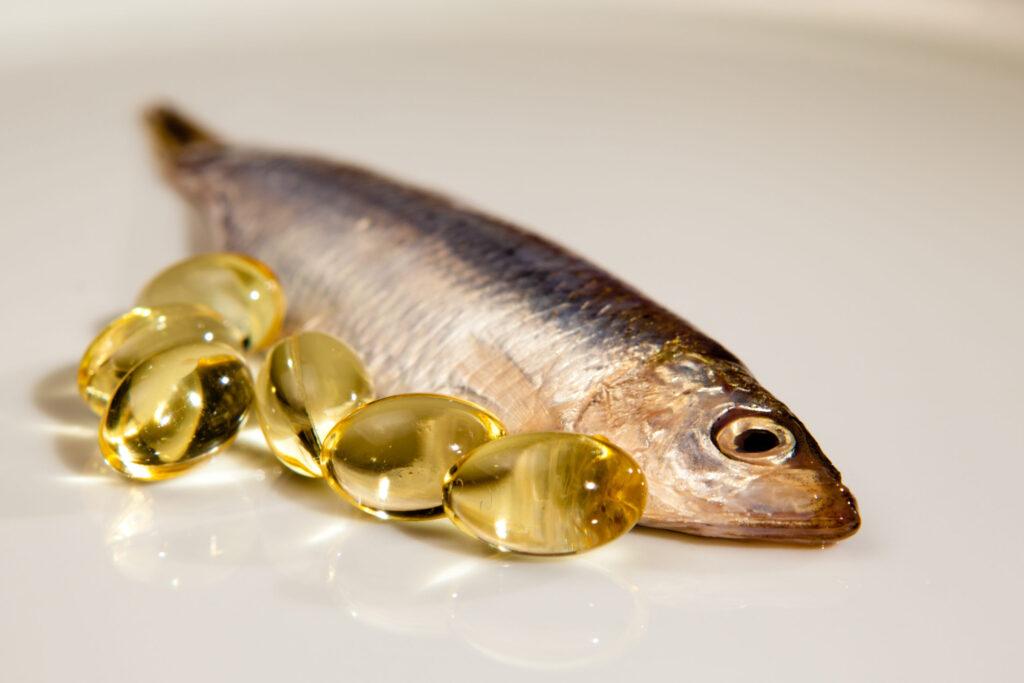
This supplement can help with the following in addition to arthritis:
Salmon, sardines, and anchovies, which are cold water fish, are the typical sources of this oil.
Eicosapentaenoic acid (EPA) and docosahexaenoic acid are two of the omega-3 fatty acids that are abundant in fish oils (DHA). The anti-inflammatory effects of EPA and DHA provide advantages for the skin, heart, kidney, brain, and joints.
You can begin taking fish oil supplements at any age, but if your dog is still a puppy or taking medication, talk to your physician first. For an energetic, athletic dog, sooner is preferable to later.
Depending on the ailment being treated, the recommended dosage of combined EPA and DHA (omega-3 fatty acids; see sidebar) ranges from 70 to 310 milligrams per kilogram (mg/kg) of body weight, or 1 mg per 2.2 pounds of your dog’s body weight. The National Research Council (NRC) states that 370 mg/kg is the maximum safe level.
Introduce your dog to fish oil gradually to ensure that it is tolerated because some dogs can be sensitive to them, particularly if they have a history of pancreatic or gastrointestinal problems. Dogs who consume too much may get vomiting, pancreatitis, and greasy diarrhea.
Make sure to include the fat content of fish oil in your dog’s calorie budget if your dog is overweight. The veterinarian of your dog should be consulted if you are unclear of the recommended dosage for your dog.
What Benefits Does Fish Oil Provide Dogs?
The quality of supplements like fish oil is not regulated by the American Food and Drug Administration (FDA). To ensure that you are giving your dog is safe and devoid of toxins like heavy metals or polychlorinated biphenyls, please make sure you buy it from a reliable supplier (PCBs).
We advise selecting a fish oil dietary supplement that bears the National Animal Supplement Council (NASC) seal. The NASC is an independent organization that makes certain that its member businesses follow the high requirements for ingredient quality and advertising techniques.
If you would like to know more about supplements for your dogs ormore information on our Posh Dog Knee Brace, you can contact us via our form, click here, if you would like to check out our Facebook Community click here.
Give Your Dog a Big Hug from Us! Let Your Dog Recover With Our Custom Dog Knee Brace!
We’ve Helped Thousands Of Dogs, Now We Want To Help Yours… The Most Comfortable Dog Knee Brace For Dogs With A Torn CCL/ACL!
We Accept Care Credit Financing.
Our Custom Dog Knee Brace Is Much More Effective Than A Ready To Wear, Or A Soft Dog CCL Brace. The No-Casting Posh Dog Knee Brace: We Made The Cast, An “Ordeal” Of The Past.
CBD for dogs can benefit dogs with a variety of problems, including pain and anxiety, but you must choose a canine CBD product from a trustworthy supplier.
Cannabidiol (CBD), a cannabis plant derivative that has no psychotropic ingredients, is now widely available in pet supplements.
According to “Pet Supplements in the U.S.,” 21% of dog owners bought CBD dietary supplements in 2020. According to Packaged Facts, sales of CBD for dogs products are expected to reach $95 million in 2020, a 217% rise from the previous year. Additionally, all of the nation’s top chains of pet supply stores have established retail ties with the producers of CBD dietary supplements.
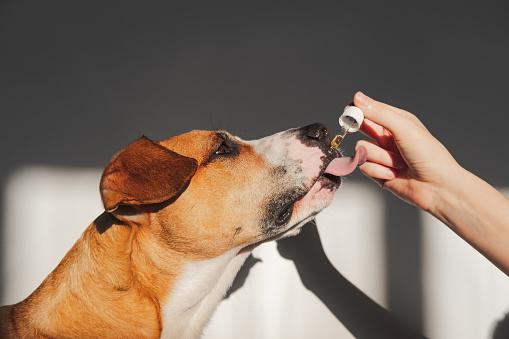
You can see that there are many different CBD for dog products available. How do you decide?
Products made from hemp but without CBD may have health benefits, but if you want your dog to specifically benefit from CBD for dogs, you must choose a CBD-containing product!
Verify the dates! Reputable manufacturers provide the lab results for their items on their websites or have QR codes that link to online reports. The report must include the date, a detailed description of the tested item, as well as the name, contact information, and phone number of the test provider.
To ensure that you can administer dosages consistently for a predictable impact, the lab report should list the cannabinoids that are present in the product and their concentrations.
Avoid a firm’s items if the product label or company material implies that it is a panacea for all of your dog’s ailments. Avoid “treats” as well, which are considered foods and are therefore prohibited from having CBD. “CBD dog treats for anxiety” is one example. Laws governing labeling violations are a sign of a novice or dishonest product maker. Avoid the business in either case.
The findings of a research that examined goods that contained hemp or cannabidiol compounds were released by the U.S. Food & Drug Administration (FDA) in 2021. Tests were performed on nearly 150 goods to identify the cannabinoids that were present in them. Less than half of the surveyed items had cannabidiol concentrations that were 20% or less of what was stated on the label.
Such outcomes are intended to be avoided by using certification from the NASC and third-party lab testing.
First-time users will benefit from advice on dosage and what kind of product will work best for their dogs. Since veterinarians aren’t allowed to discuss CBD for dogs with their patients in most states, let alone recommend a specific product, the next-best resource is an experienced user who has a close, long-term retail relationship with ethical product suppliers.
An increasing number of dog owners who support CBD for dogs do so because they feel it treats cancer and immune-mediated disorders while reducing anxiety, seizures, discomfort, and allergies. Manufacturers of CBD supplements, however, who are subject to regulation under the Dietary Supplement Health and Education Act of 1994 (DSHEA), are not permitted to make “drug” claims about how CBD treats or alleviates any illness or medical symptom.
Because there were considerable legal obstacles for both academic and commercial study into CBD, as well as restrictions for growing and harvesting these plants, then refining and marketing products that include CBD for dogs, up until recently, CBD’s appeal has been largely driven by anecdotal evidence. When the Agriculture Improvement Act, also known as the Farm Bill, was passed in 2018, it descheduled cannabis species with less than 0.3% dry weight of delta-9 tetrahydrocannabinol (THC), removing these obstacles and opening the door to both commercial production of CBD-containing goods and research into its safety and advantages.
Studies have so far shown promise. Researchers from Cornell University conducted a 2018 study on dogs with osteoarthritis that revealed no adverse effects, a considerable reduction in pain, and an increase in activity. A tiny Colorado State University study (16 dogs) examined the use of CBD for dogs to treat canine idiopathic seizures and discovered that canines receiving CBD experienced an 89% decrease in seizure frequency.
Without plenty of anecdotal evidence that at least some of the products are beneficial to dogs, it is difficult to see how the CBD for dogs market could have expanded so quickly. In any young, rapidly expanding market, there are plenty of con artists, but few individuals keep buying useless products over and over again. The industry’s amazing rise indicates that they are effective, and the startling paucity of tales of negative experiences should persuade you to try CBD for your dog.
If you would like more information onthe CBD for dogs you can contact us through our contact page or check out our Facebook Page.
Hey guys, this is Nikki, Lead Veterinary technician with Posh Dog Knee Braces. So, today I would like to talk about probiotics for your dog. Let’s face it, we have all had a dog with diarrhea or gastritis at one point, and it is not fun. Weather you have a new puppy, and are switching to a better quality puppy food, or a dog that maybe likes to dumpster dive, or one that licks out of that gross water puddle on your walk, probiotics may be a good option for you.
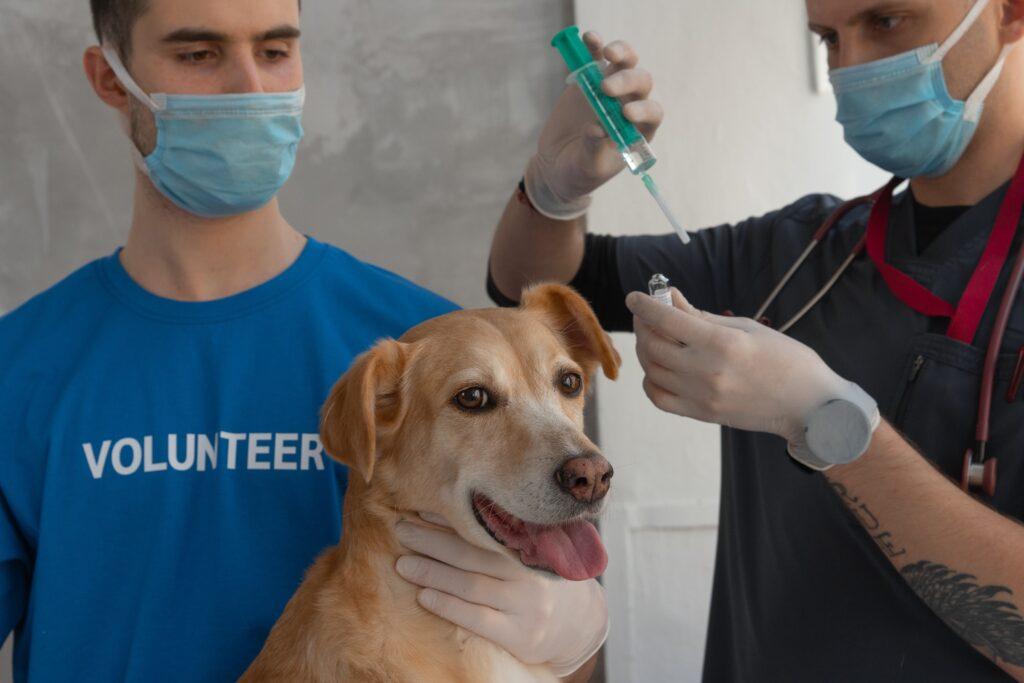
They help with diarrhea, intestinal upset, and can also help with dog allergies. If you have a female dog, they may also help in countering UTI’s, or even anxiety. Some dog food manufacturers are getting on the probiotic train, and may already be adding this to their diet, especially some of the Raw food diets out there.
I like to give my dog probiotics proactively, such as before I leave on a trip, if there will be a petsitter coming. That is a stressful event, and I don’t need my dog to get a stressful tummy, or anxiety. They can also be given as a daily part of long-term health.
Did you know that 70% of your dog’s immune system is their GI tract? It goes the same for people in that sense. So, by taking care of your dog’s tummy, it makes for an easier transition if they need to take pain medications, supplements, stressful events coming up, or if they have acute diarrhea. I typically will give at least 7-10 day course for a dog with loose stool/diarrhea, or a new puppy. They can really help in prevention of stress colitis, and that very expensive veterinary visit that follows. You can also add a tablespoon of canned pumpkin along with the probiotics if treating diarrhea, such as a new puppy.
The good news is that there are lots of great probiotics available both by your veterinarian and online. I really like Fortiflora personally, by purina, however, Zesty Paws also has a really nice product. Just do your research, and make sure they have good reviews before purchasing. Let me know if you have any questions, poshdogkneebrace.com or you can visit our Facebook page.
Read reviews check out our Google Reviews online. Click Here
Let’s talk about Adequan today, and the many benefits it has! Another name for it is Cartrophen, for those in Canada or other countries.
Adequan is an injection given either in the muscle (most common) or under the skin.

This medication stops cartilage loss in the joint and helps to restore lubrication , relieve inflammation, and renew building blocks of healthy cartilage. It is also one of the only medications that can help slow down arthritis.
I find patients with meniscus tears see results rather quickly with Adequan therapy, especially if they also have arthritis findings.
It is very safe, with basically no side effects in their study groups. Much safer than NSAIDs and anti-inflammatory drugs.
Can be administered at home after a prescription is given.
This can be very helpful when used in conjunction with our brace for CCL tears and meniscus issues.
This is why we, at Posh, recommend this injection for any dog with a knee injury. For more information you can leave a message on our contact form or visit our Facebook Page.
Read reviews check out our Google Reviews online. Click Here

We have a lot of questions regarding supplements, and we want to go over a few of those today that will really help with the recovery process. Most patients that come in are on some form of prescription pain relief/NSAID, such as Carprofen/rimadyl, meloxicam/Metacam, etc. While these may seem to work initially for pain relief, we really suggest switching over to a more natural approach that will be safer long term.
NSAIDs, like carprofen, can cause long term issues with the liver and kidneys, and can also cause GI bleeding and issues. They can also delay healing, which is not what we want with an injury. Because of this, we like to recommend a safer alternative, such as something with White willow bark if your dog is in need of more pain relief. Please note that you should ask before giving supplements along with prescriptions, as some medications can interact with each other, such as willow bark and NSAIDs.
Some of the supplements that we suggest are: green lipped muscle, turmeric golden paste, boswelia, white willow bark for pain, glucosamines, Cartilage, Bone broth (1-2 tablespoons). Egg powder for muscle atrophy. CBD oils can also be great for chronic pain and inflammation.
Posh Dog Knee Brace Supplement & Support Recommendations
Supplements
Nupro Silver Powder, it comes in various sizes. This outstanding nutritional supplement for joint and connective tissue health contains glucosamine, sea kelp, shark cartilage, and many other beneficial ingredients. It can be bought off their website, or many other online retailers. https://www.nuprosupplements.com/Joint-Immunity-Support_c_27.html
GlycoFlex Plus, an advanced joint support supplement for dogs of any age, is clinically proven to increase hind leg strength up to 41% in just four weeks. It can be purchased through their website, or other online retailers.https://www.vetriscience.com/index.php?l=product_detail&p=9009205120
Turmeric, gold paste is the most common use. (The suggested dosage is approximately 15 to 20 mg per pound of body weight in dogs. This is approximately 1/8 to a 1/4 teaspoon per day, for every 10lbs of body weight) Or 1 crushed pill-450mg-95% curcuminoids + black pepper for increased bioavailability. Some pups can not tolerate the pepper, so make a small batch and see how it works for your dog.
Green Lipped Muscle, this is already in the Glycoflex Plus but if you decide not to use it this should be added to your dogs supplement list. A rich source of omega fatty acids and minerals, this is a natural anit-inflammatory and excellent source of glucosamine and chondroitin.
Spirulina Powder, 1 tsp with food daily. Spirulina strengthens the immune system and overall health of your pet. It can be bought at www.nowfoods.com You can read about the benefits on the following site- https://www.dogsnaturallymagazine.com/benefits-of-spirulina/ https://www.dogsnaturallymagazine.com/is-it-safe-to-give-dogs-spirulina/
Boswellia Extract-Reduces inflammation and overall joint pain. This can also be bought from www.nowfoods.com
White Willow Bark with Pineapple Bromelaine- A natural aspirin and pain reliever
CBD Oil-I prefer Kingkanine 300mg, suspended in highly beneficial krill oil. CBD oil is great for overall wellness and decreases chronic pain and inflammation in the joints. Use our code for 10% off-Poshdogknee10 https://kingkanine.com/collections/king-kalm-cbd/products/king-kalm-cbd-300
Keep in mind that not all supplements work, or are safe for all dogs. While most the ones we list are all natural, please take the time to do your research and make sure nothing will interact with any illness, disease, or medication your pet may have or be on. If you are unsure please speak with your Veterinarian or a Holistic/Homeopathic Dr.
We listed a wide range of products and there is some overlap on them-so pick what your pet needs and buy based on that. You do not have to buy every one of these products.
Support
Dr Buzzby’s Toe Grips– These give amazing traction to your dog. Dogs with CCL injuries tend to have trouble with traction after the injury and during the healing process. These eliminate slipping and reduce the risk of reinjury by slipping on slick floors.https://toegrips.com/
PetSafeSolvitCareLift Full-Body Lifting Harness- You can choose to use just the hip section or both. This gives you and your pet peace of mind and aids you in helping them when they are not weight-bearing well. https://www.amazon.com/gp/product/B008EXJIG2/ref=oh_aui_detailpage_o00_s00?ie=UTF8&psc=1
If you are interested in more information you can contact us through our contact form.
Read reviews check out our Google Reviews online. Click Here
Our former vet offered us rimadyl to help with our Beloved golden Pashas’ CCL injury in 2013. Since we had researched the considerable dangers of this medication plus, previcox, metacam, carprofen and other NSAIDS like, we rejected it. This former vet never told us anything about how harmful, even fatal, this drug can be for Dogs.
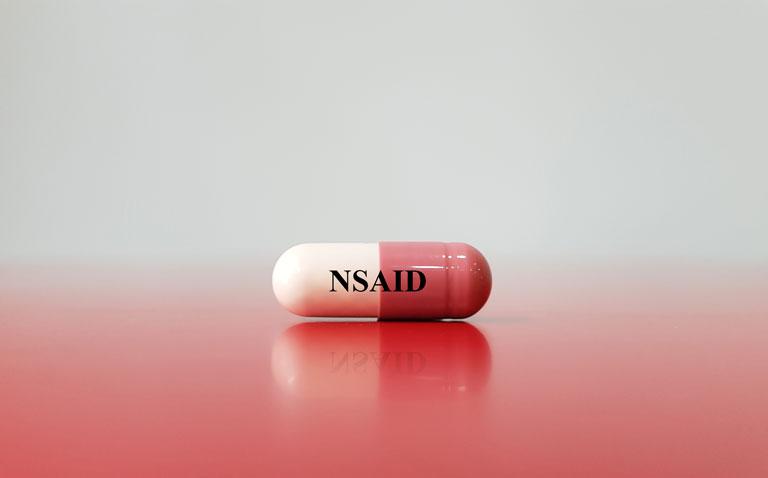
Unfortunately, the people in the story below, lost their precious Golden, Sophie, in 2009. Their vet did not mention the severe dangers of these for Dog parents. Their story, in part, is what helped saved Pasha from the significant risks of NSAID type anti – inflammatories.
You can read more info about NSAIDS and safe, effective, and homeopathic remedies at another blog here, called “Must read article about NSAIDS.”
Need more information you can reach out to us on our contact form.
Read reviews check out our Google Reviews online. Click Here
They prevent prostaglandin synthesis (1). All cells in the body manufacture prostaglandins from fatty acids. Prostaglandins of many sorts regulate inflammation in the body.
An enzyme system transforms arachidonic acid into prostaglandins when tissue injury occurs. There are two forms of cyclooxygenase that perform this conversion: cox 1 and cox 2. NSAIDs can block cox 1, cox 2, or all of them.

Aspirin and other should be avoided unless absolutely required because they usually result in gastritis or peptic ulcers.
Ibuprofen and others intended for human use are not suitable for use in dogs or cats. These medications cause deadly, severe intestinal and stomach ulcers.
Please take a minute to visit this website regarding NSAIDS, and the issue with giving them long term, as well as more in depth information about how they work in our patients. https://www.dogsnaturallymagazine.com/think-twice-before-using-nsaids/
If you would like more information you can contact us through our contact form.
Read reviews check out our Google Reviews online. Click Here
Many Dog parents are becoming aware how dangerous nsaid drugs are for Dogs. Nsaids have reportedly killed as many as 60,000 Dogs (sixty thousand). Nsaid is the acronym for “Non Steroidal Anti Inflammatory Drug.” It’s completely different then Natural Nutraceuticals.
Just search “rimadyl deaths” — Or read articles like THIS and THIS
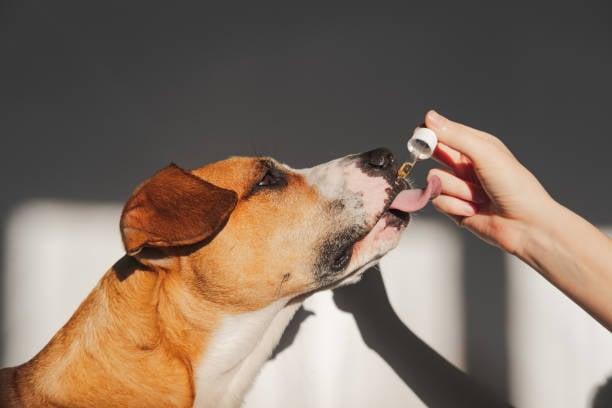
Nutraceuticals are products derived from food sources that are proven to provide extra health benefits, in addition to the basic nutritional value found in foods and are often equally effective at treating and managing pain and inflammation for Dog with injured stifles.
Here is an informative article about this subject:
“Post navigation Nutraceuticals and Inflammation By: Andrew G. Yersin, PhD From IVC Issue: V4I4
Pain management caused by inflammation is an important part of veterinary care. Musculoskeletal pain can result from tissue damage to muscles, tendons, ligaments, bone and articular surfaces. Depending upon location, function and innervation, musculoskeletal pain can have varying characteristics and patterns:
Various types of tissue injury can lead to chronic inflammation and pain through a complex cascade of signaling events. Injured cells release arachidonic acid, a membrane lipid, which is converted through enzymatic reactions to leukotrienes and prostaglandins that can trigger further inflammatory responses and increase the sensitivity of pain receptors. Simultaneously, the release of reactive oxygen species (ROS) and pro-inflammatory cytokines from damaged cells triggers the activation of the transcriptional factor NF-B. This protein serves as a major control point in the inflammatory process, and further perpetuates the cycle of inflammation and pain by increasing the expression of a variety of pro-inflammatory cytokines and enzymes.
Nutraceutical support includes the use of antioxidants, Omega-3 fatty acids, and specific botanical ingredients that target the enzymes and other mediators of the inflammatory signaling cascade, and support a healthy anti-inflammatory response.
Boswellia is powdered gum resin of the plant Boswellia serrata. Active molecules include a variety of triterpenoids, collectively called boswellic acids, that have been demonstrated to be potent inhibitors of the pro-inflammatory enzyme 5-lipoxygenase, and also act via the inhibition of prostaglandin E synthase-1 and the serine protease cathepsin G. In animal and human studies, boswellia has shown to exhibit analgesic and anti-inflammatory effects.
Yucca is dried powder from the plant Yucca schidigera. Active molecules include trans-3,3’,5,5’-tetrahydroxy-4’- methoxystilbene, alexin and reseveratrol, as well as additional saponins and phenolic compounds. These molecules have been demonstrated to act as potent antioxidants and anti-inflammatory agents. One of the primary mechanisms of action for its anti-inflammatory activity is proposed to occur via inhibition of NF-κB and nitric oxide synthase (iNOS).
MSM (methylsulfonylmethane) occurs naturally in fresh fruit, whole grains, vegetables and animals. It serves as a source of sulfur necessary for the health and maintenance of mammalian connective tissues. MSM has been demonstrated to inhibit the activity of NF-κB, leading to a decrease in pro-inflammatory cytokines, nitric oxide, and prostaglandin E2.
Meadowsweet is the common name for the herb Filipendula ulmaria. Key classes of molecules identified in meadowsweet include salicylates, tannins, flavonoids, phenolic acids, and phenolic glycosides. Meadowsweet’s analgesic effects are largely attributed to salicylic aldehyde, a precursor for acetylsalicylic acid (aspirin).
Nutraceuticals may be used to support health and well-being. Whatever treatment strategy you choose, it is important to continue assessing pain and other health indicators to ensure the patient stays comfortable and general health is maintained.”
SOURCE: http://www.ivcjournal.com/articles/nutraceuticals-and-inflammation/
Consider treating the pain and inflammation caused by a dog ACL/CCL knee injury with natural, organic and effective remedies, instead of the dangerous and often lethal nsaids. With a synergistic mix of a Dog knee Brace for ACL injury, increased nutritional supplements for Dog ACL injuries, along with conservative management, your Dog can recover from a CCL rupture, very likely without surgery!
Order your brace today!
Read reviews check out our Google Reviews online. Click Here
We are the only Dog knee brace site who offers advice and tips on holistic and homeopathic supplements. We believe in natural healing. We use and recommend the following products. We do not get paid from any of these companies, who do not even know we recommend their products. We are not part of any affiliate program. We have included links for your convenience, but feel free to look into other companies who sell the same products. As with all the content of this website, it is not to be construed as medical advice in any form. If you seek medical advice, consult with a veterinarian.
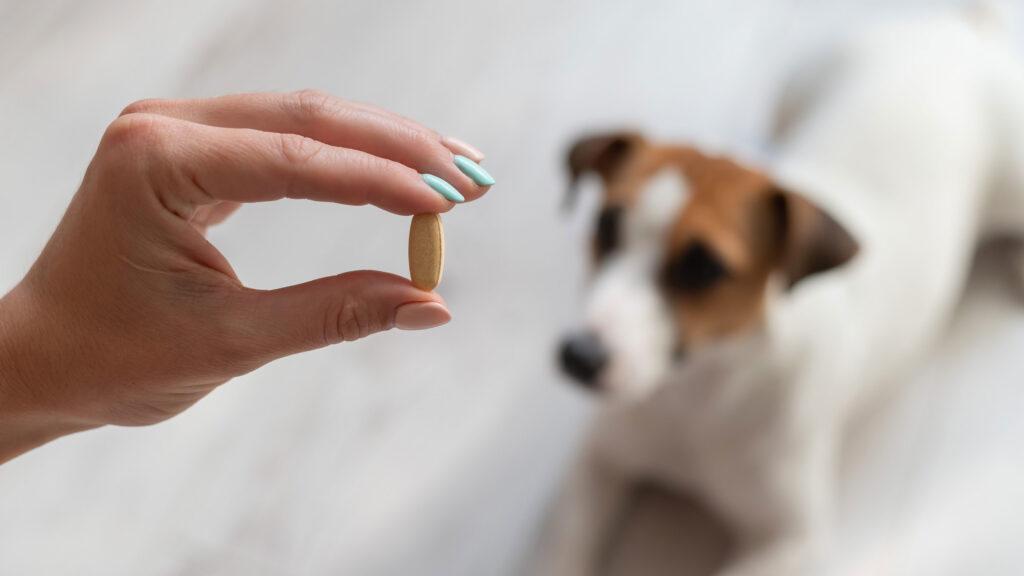
In addition to wearing a Dog Knee Brace for a K9 torn knee ligament, Pasha is given a daily “cocktail” of high quality supplements which support healing, accelerate tissue repair, and help alleviate pain and inflammation in her injured knee. We use a mix of supplements, including Nupro Silver for Dogs with CCL or ACL Injuries. Nupro Silver is a fabulous, high quality nutritional complex supplement which contains glucosamine, kelp, shark cartilage, MSM and other ingredients which can help your Dog recover from a ligament injury along with a Dog stifle brace, exercise, and conservative management.
You can get Nupro Silver online.
Ever since Pasha suffered a complete rupture of the Cranial Cruciate Ligament (CCL) in her left hind leg in 2013, part of her recovery has included a special, yet simple, daily “bone juice” which we give our 72 lb. Golden. She gets this once every AM and then the rest of her food throughout the day. (She fully recovered from her complete rupture over 14 months ago and no longer wears her Posh Dog Knee Brace).
Wearing a Dog knee brace for a canine CCL injury is just one part of the holistic approach and solution for a Dog ACL knee injury.
We buy the Nupro Silver from www.USBones.com. It comes in various sizes. This outstanding nutritional supplement for joint and connective tissue health contains glucosamine, sea kelp, shark cartilage and other beneficial ingredients!
When combining Nupro Silver with Glyco-Flex 3, be sure not to exceed the ingredients, as there is ingredient redundancy in these products.
The Alaskan wild salmon oil offers a high concentration of Omega-3 essential fatty acids and in more effective concentrations and higher quality than traditional fish oil.
Shop around for the spirulina, green lipped mussel, and tumeric to get the best pricing.
Some credible websites recommend UP TO 500 MG of glucosamine per 25 pounds of body weight. It may be a good idea to gradually build up to the appropriate dosage over a few weeks. Please read the entire article, particularly the section about contraindications. BTW this site has lots of truthful and outstanding articles about Dog Health – a must read!
We give our Golden baby 4 oz of DECAF green tea in her bone juice, since it is so beneficial for preventing cancer and overall health, BUT it MUST be decaf – caffeine can be very dangerous for Dogs! BTW check back soon for tips on avoiding and treating cancer in Dogs.
Remember that helping a Dog recover from a partial or complete rupture of the ACL involves more than just a well-built custom Dog knee brace or Dog stifle brace for a canine knee injury from Posh Dog Knee Brace, it also involves nutritional supplements and conservative management! Look for our upcoming blog about this.
Wishing your Dog a long, healthy and fulfilled life! Give your beautiful Dog a BIG hug from all of us at PoshDogKneeBrace.com!
Update # 1: In addition to giving Pasha DECAF [caffeine will harm Dogs!] green tea each day as an anti-cancer measure, we’ve also added a daily capsule of medicinal mushrooms: Reishe, Maitake and Shiitake mushrooms. Even though Pasha does not have cancer, given her age, we are introducing herbs and other confirmed, safe, anti-cancer agents to her daily routine.
We learned about this amazing mushroom mixture, used by Eastern (real) doctors for many centuries, at AnimalWellnessMagazine.com, a fabulous magazine that promotes REAL heath, and NOT big-pharma, 100% profit-based “health” in Dogs!
Update # 2: Although she presents with no symptoms of cancer or malignancies, and as apreventative measure, and after spending >> hundreds << of hours researching confirmed alternative and authentic treatments for cancer (many say cures), each day we give Pasha 6 crushed, raw, unpasteurized apricot kernels which we buy from ApricotPower.com These MUST be unpasteurized seeds, since pasteurization removes most nutrients from any food. Just search LongLivingPets.com to learn more, or search “laetrile cures cancer”. Apricot seeds have a very high density of naturally occurring laetrile.
Update #3: Now That Pasha is 13, she is no longer fond of mixing a lot of the foregoing supplements in decaf green tea. We now give her supplements wrapped (hidden) in fresh ground turkey “eggs,” i.e. Packed into about 2 tsp. of ground turkey. For the supplements in powder form, like the ground apricot seeds and Nupro Silver, we fill large gelatin capsules and wrap those with ground turkey. You can buy 500 large gelcaps on amazon for almost nothing.
(C) Copyright 2015
Contact us for more informatin. Click Here
Read reviews check out our Google Reviews online. Click Here